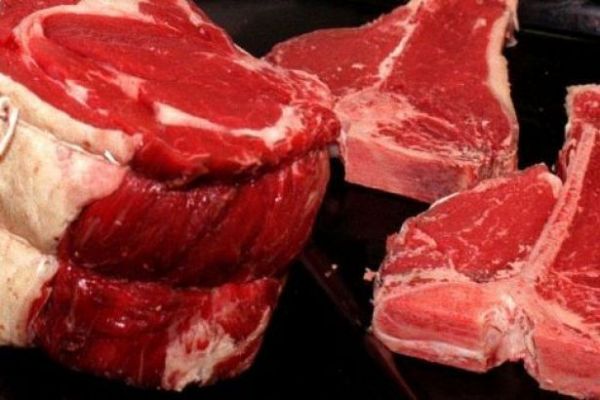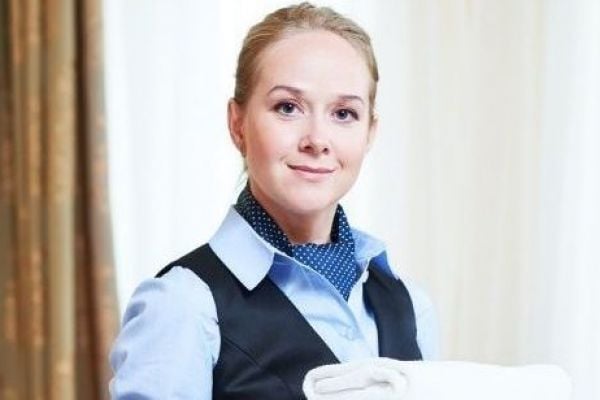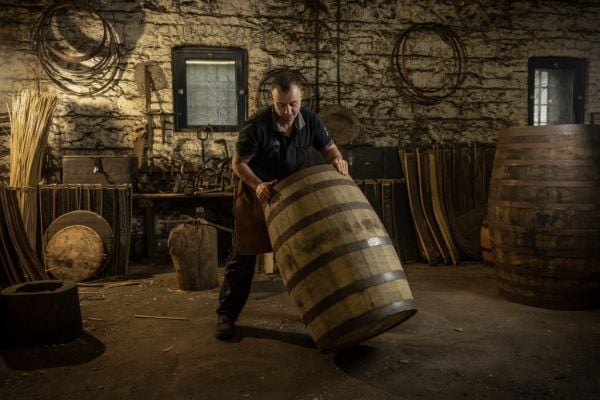Key Details: Blackmore Wagyu steaks from Australia—available for the first time in the U.S. at chef Curtis Stone’s Los Angeles restaurant and butcher shop, Gwen. Competitors: Japanese Wagyu, Kobe beef, heritage breeds from Argentina and Italy. Price: From $22 to $180 per pound, at the Gwen butcher shop. Why It’s Worth It: You can travel the world for incredible steak dinners, but rarely are steaks of this quality available to home cooks.After you’ve had the best croissants in Paris, the local bakery just doesn’t cut it any more. That can happen with steaks, too—it did for me four years ago, after an incredible dinner in Italy.
It was in the tiny town of Panzano, a Tuscan speck roughly 40 kilometers (25 miles) south of Florence, where a series of switchbacks and impossible-to-follow road signs eventually led to the carnivore’s paradise of Officina della Bistecca. That’s where Dario Cecchini, the cattle rancher-turned-chef-turned-beef poet, churns out nightly communal dinners that feature beef, beef, and more beef: namely, his signature, raised-on-premises Florentine and Panzanese cuts. He practically sings to the steaks as they grill over a roaring fire, raising and lowering the cooking surface with pulleys to achieve the optimal effect. Everything about it was theater, the butcher incarnate of Beatrice leading diners to the ninth sphere of heaven.
I thought, after that glorious Italian evening, that I was done forever. And while it took me four years to find another steak as tender and full of flavor, I now know that it’s possible to recreate steak nirvana at home. If you live in Los Angeles, anyway.
That’s where the celebrity chef Curtis Stone and his brother, Luke, have opened Gwen, a restaurant and butcher shop featuring an ingredient as rarefied as Cecchini’s Panzanese: Australian Blackmore Wagyu.
Stone, who trained under London’s legendary chef Marco Pierre White before becoming a television personality on TLC’s Take Home Chef and Bravo’s Top Chef Masters, is the only chef currently bringing the rare Australian steaks to North America. He’s also the first to sell them here—and had to secure a distributor license to do so. (Blackmore has distributors in 13 other countries; see here for details.) Soon, he says, he’ll be purveying them to other well-known chefs around the country—but the details on who and when are still in the works.
“There are only a few world-class butcher shops in the world, and there’s never been one in Los Angeles,” Stone said during an interview at Bloomberg’s New York offices. Unlike other high-concept butcher shops that focus on whole animal or organic specimens, Stone’s philosophy is simpler: “We’re simply prioritizing the most delicious cuts in the world,” he said.
In pursuit of that goal, Stone and his team tasted 20 of the best grain-fed beefs to find a favorite. (He will also carry grass-fed varieties but considers grain-fed to be of premium quality.) The winner: Australian Blackmore Wagyu, a pure breed of cattle devised by the Victoria-based cattle farmer David Blackmore.
“Blackmore has literally redefined the way the Aussies think of meat,” said Stone, explaining that steaks were once graded on a scale of one to six. Blackmore’s first score? A six out of six. “[Japanese graders] had to change the way they graded steaks to a nine-point scale because Blackmore kept outdoing himself,” Stone added.
Facebook: How to Cook a Perfect Steak with Curtis StoneMost Wagyu steaks, said Stone, are the result of cross-bred cows, while Blackmore uses only fullblood (purebred) cattle for his cuts. The Japanese varieties strive for a maximum fat content, for better shabu shabu (a thinly sliced, broth-based preparation that melts the steak’s fat), while Blackmore steaks are more balanced in their fat-to-meat ratio. “These are more suitable for eating as steaks,” said Stone, whipping out a perfectly marbled ribeye that looked fit for Fred Flintstone.
For those concerned with sustainability, Stone offers an optimistic outlook. “All the humane cues go hand in hand with creating the best tasting steaks,” he said, noting that Blackmore and his cohorts in the premium cattle farming industry use balanced diets and fair husbandry practices as key ingredients for delicious steaks.
Blackmore is developing a new benchmark program called “Eco-feeding,” which encompasses natural and nutritional feed lots, appropriate weaning time for young animals, and humane environmental standards. Plus, added Stone, “Australia has never had mad cow disease, so they’re able to ship their [bone-in] products to the U.S.”
If you're not looking to live within striking distance of Victoria, you can get your taste of Blackmore beef at Gwen, Stone’s restaurant, where the menu includes such items as a 42-ounce bone-in ribeye for two ($390). Or you can buy it from Gwen’s butcher shop and prepare it in your oven or grill at home—Stone provided us with a step-by-step tutorial on cooking the perfect steak. Cuts range from Wagyu grind ($22 per pound) to ribeye ($99 per pound) and tenderloin ($180 per pound).
Among the chef’s tips for preparation: Season simply, with Maldon salt and, optionally, freshly cracked pepper; rotate the steak every few minutes for even, sous-vide-like cooking; and serve with nothing but a drizzle of olive oil. (The acidity is a welcome touch.)
You’ll be left with a steak that’s tender and buttery beyond compare. The flavor is unadulterated in a way that reminded me of biting into an heirloom tomato. “This is what steak is supposed to taste like,” I thought, bite after bite after bite.
One day, Stone hopes to make the steaks available for mail order in the U.S.—the demand, he says, would make it a profitable venture. But Blackmore’s production is still small and limited, so in-person orders in Los Angeles are the best course for now.









